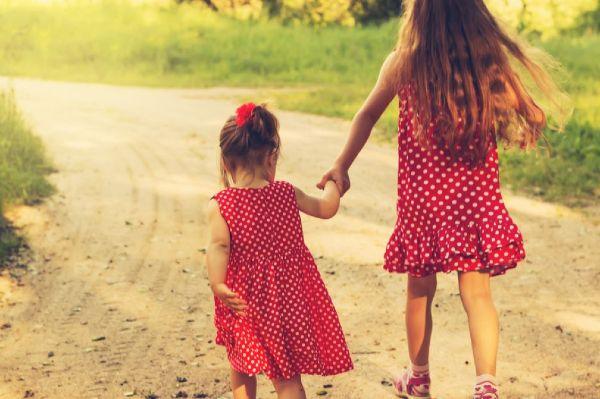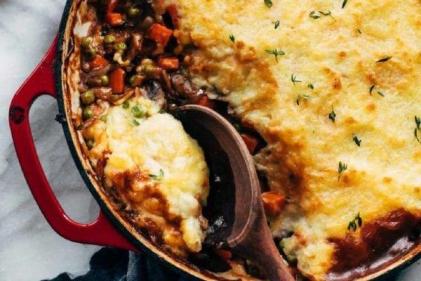They are our greatest playmates and our worst rivals, our brothers and our sisters shape us for life. We have a shared history and often get our first taste of close relationships. Watching my own children together, I’m mostly 100 percent baffled by what they are talking about. But they seem to understand the same language – nodding sagely at Pokemon characters and smiling in conspiracy when I ask who unrolled the entire toilet roll.
At just seven and six-years-old, these siblings have shared their entire childhood, navigating their challenges and joys together – lives in parallel. I look at these two unlikely buddies and realise that a brother/sister relationship is truly unique. Life’s longest-lasting relationship is often very complex.
Now, new research has shown that having a sibling helps children develop sympathy. Researchers examined the relationship between siblings in more than 300 families and found having a quality relationship with a brother or sister may promote altruism in teens, especially boys.
“In our study, most relationships were not as important for boys as they were for girls,” study co-author Laura Padilla-Walker said in a university release. “But the sibling relationship was different—they seemed to report relying on sibling affection just as much as girls do. It’s an area where parents and therapists could really help boys.”
When my daughter was seven-months-old, we decided in a moment of complete clarity not at all clouded by hormones, that we would give her a sibling. That meant that when her little brother was born she was just walking – teetering around on pudgy legs trying to feed ice-cream to her newest pet. Potty training involved chasing her around the house with a three-month-old attached to my breast. She didn’t seem to mind that she had to share her parents. Now, it is all she has ever known. Naturally, everyone presumed I was completely nuts – and the first year or two was a little nutty. But now, (just like everyone reassured me) I can see the benefits of their tiny age gap. Just like twins, my pair do everything together – they get signed up to the same summer camps, they learnt to ride their bikes on the same day and love all the same movies. They really seem to enjoy each other’s company and it is really touching to see.
Parents have a powerful impact on the development of children but due to the consequences of age and mortality, siblings spend more of their life being shaped by each other. The influence of siblings on personal development appears to be largely overlooked by science. Once children enter a family they have the huge task of figuring out how and who to be, while carving out a role within the family unit. Twins and siblings close in age can be a huge support to each other as they tackle these issues together, unencumbered by traditional envy. They may not always admire you but they’ll always be interested in you. If you ask a sibling to describe a parent or a sibling, it is the sibling that the child will remember with the most sophisticated and details in terms of character and habit.
Family sociologist Catering Coger from the University of California has been studying the relationship between brothers and sisters for the past 15 years. “To the outside world, we all grow up (and old) but not to brothers and sisters. We know each other as we always were. We share ‘in-jokes’, family griefs and joys. We live outside the touch of time.”
This relationship between siblings has another layer when it comes to different genders. Sisters teach brothers about the mysteries of girls, brothers unlock the puzzle of boys for sisters. It is often the way we first learn about the differences between the sexes. There is an influence too in areas of identity development, relationship with others and in sex-typing (how much girls and boys express stereotypically male or female qualities). Even if you don’t get on, or your relationship changes as you move on with your life, there are many advantages of sibling relationships that can and should be nurtured. You are more likely to have the same core values, sense of origin and family history on which to build.
I have a little bit of both. My sisters are my councillors and friends, while my brothers opened my eyes to some parts of life that I might never have otherwise experienced. Yes, they encouraged me to take more risks but they also showed me some of the vulnerability that hides behind the bravado and masculinity. It is a relationship that we sometimes take for granted in our youth. They are just part of you. We are a loud, loyal, loving and lasting unit.
As sad as it may be, our parents eventually leave us, we gain our own family but our siblings are part of our entire journey. It is only now that we are actively nurturing that bond because we finally understand its importance. Often with our siblings, we feel much, much stronger than we did as individuals. Throughout our lives, whenever the need arises, we know we are able to call on that strength.
Now I am the new referee for squabbles and bickers that used to be my own. My daughter is her brother’s protector. In turn, he brings out a confidence in her that she needs. She cools his fiery jets and together they are forging a link that will belong to them for life.
Three years ago, they got a new gang member — a giddy, fierce, little sister who hero-worships them (and obviously, as the youngest, fetches things for them). Despite the odd thump, they have welcomed her into their happy clique and we are now officially outnumbered.









